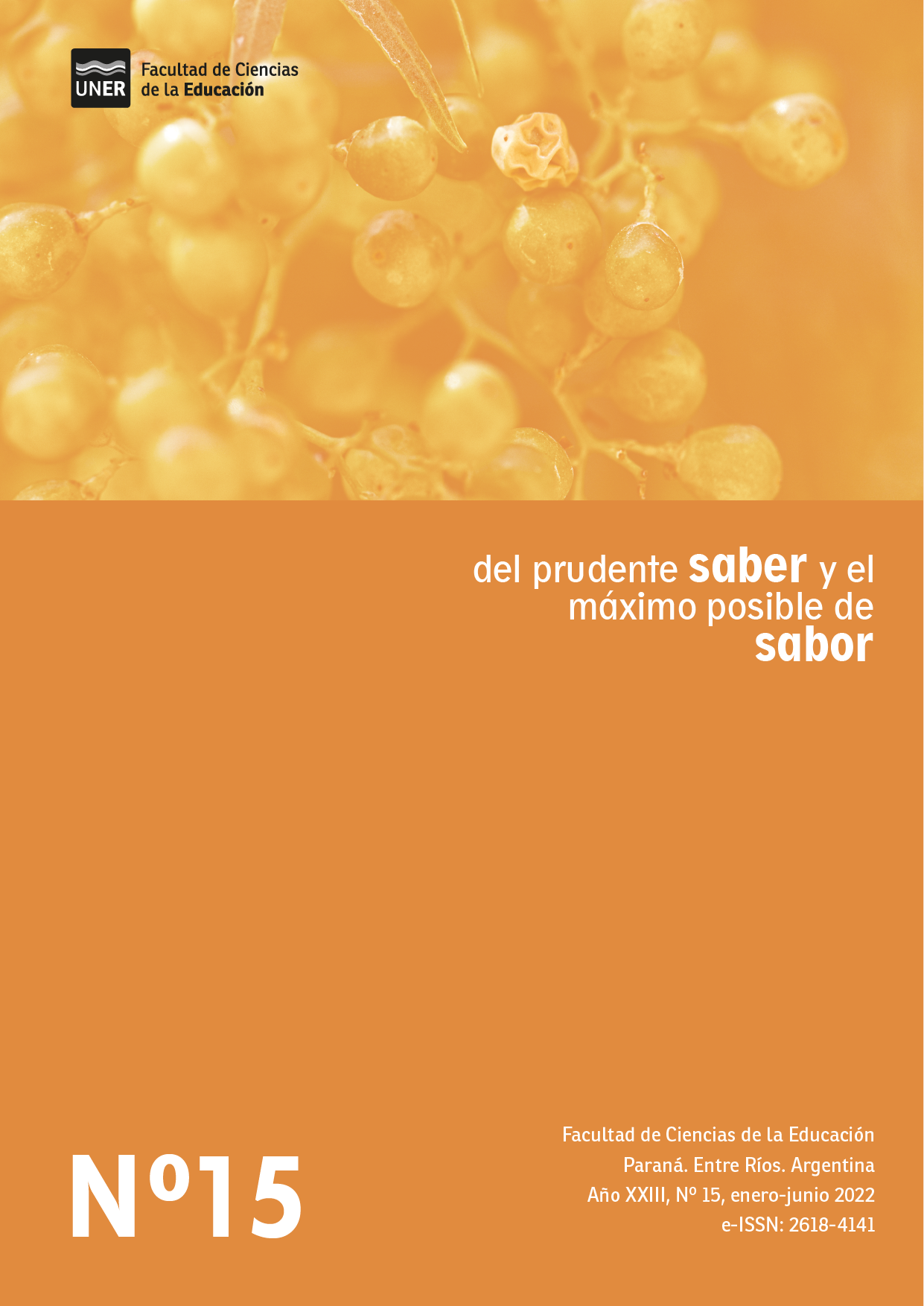Letters to Those who Dare Learn to Teach: Freire from the Classroom, in Times of Uncertainty and into the Future
Main Article Content
Abstract
Universities have not traditionally been spaces for addressing Freirean thought and praxis, although there have been attempts to break this hegemonic perspective of concealment or denial of the political, pedagogical and ethical value of its proposal.
In a chair of the undergraduate degree in Ciencias de la Educación, called Tradiciones y Prácticas de la Educación Popular, a didactic proposal related to Paulo Freire was promoted by the teaching team. An activity was proposed to the students: they would write a letter to someone attending the career 10 years in the future or more, to whom they could in an imaginary way tell about this time of pandemic and how Freire's work was inspiring to them to continue thinking and doing educational processes even in times of uncertainty, doubt and despair.
Just as Freire used the letter as a pedagogical record where he spoke to many generations of educators, we try to invite the young women to use this communicational piece to build a dialogue from intimacy and by appealing to their own interpretation of the legacy of the Brazilian pedagogue, in the horizon of social emancipation.
In this article we will bring excerpts from the letters of the students as ethnographic facts that speak of how the author currently generates marks in university trajectories, how it can be interpreted in such a complex and strange time like this, how a curricular space can promote understanding as anchor to project teaching work with searches for equality, social justice, solidarity and the democratization of culture.
Downloads
Article Details

This work is licensed under a Creative Commons Attribution-NonCommercial-ShareAlike 4.0 International License.
Las ediciones no tienen cargos para las y los autores ni para las y los lectores, y se incita a las y los autores a depositar sus contribuciones en otros repositorios institucionales y temáticos, con la certeza de que la cultura y el conocimiento son un bien de todos y para todos. DPS permite la reutilización luego de su edición (Post print) citando la autoría y la fuente original de su publicación. Su uso no puede ser con fines comerciales.
References
Freire, P. (1996). Cartas a Cristina. Reflexiones sobre mi vida y mi trabajo. Siglo Veintiuno.
Freire, P. (1999). La educación como práctica de la libertad. Siglo Veintiuno.
Freire, P. (2010a). Cartas a quien pretende enseñar. Siglo Veintiuno.
Freire, P. (2010b). ¿Extensión o Comunicación? La concientización en el medio rural. Siglo Veintiuno.
Freire, P. (2015). Pedagogía del oprimido. Siglo Veintiuno.
Iovanovich, M. (2006). El pensamiento de Paulo Freire: sus contribuciones para la educación. En: Gadotti,
M; Gómez, M. y Freire, L. (comps.) Lecciones de Paulo Freire cruzando fronteras: experiencias que se completan. CLACSO.
Kotscho, R. (1985). Esa escuela llamada Vida, diálogo con Frei Betto y Paulo Freire. Editorial Legasa.
Levinas, E. (2012). Totalidad e infinito. Ensayo sobre la exterioridad. Sígueme.
Lins Ribeiro, G. (2010). Descotidianizar. Extrañamiento y conciencia práctica. Un ensayo sobre la perspectiva antropológica. En: Boivin, M., Rosato, A. y Arribas, V. (Comps.) Constructores de otredad. Antropofagia.
Puiggrós, A. (2019). El pensamiento de Paulo Freire en tiempo presente. Conferencia de inauguración de la Cátedra Libre Paulo Freire de la UNLP. Archivos de Ciencias de la Educación, https://doi.org/10.24215/23468866e071
Quirós, J. (2014). Etnografiar mundos vívidos. Desafíos de Trabajo de Campo, escritura y enseñanza en antropología. Publicar -Año XXI N.° XVII- diciembre. http://ppct.caicyt.gov.ar/index.php/publicar/article/viewFile/4914/5552
Rivas-Urrego, G., Urrego, A. J., & Araque Escalona, J. C. (2020). Paulo Freire y el pensamiento crítico: Palabra y acción en la pedagogía universitaria. Revista EDUCARE - UPEL-IPB - Segunda Nueva Etapa 2.0. https://doi.org/10.46498/reduipb.v24i2.1331
Rodríguez, L. (2006). Producción y transmisión del conocimiento en Freire. En: Gadotti, M; Gómez, M. Y Freire, L. (comps.). Lecciones de Paulo Freire cruzando fronteras: experiencias que se completan. CLACSO.
Rodríguez, L. (2014). Historia de la educación latinoamericana: aportes para el debate. En: Arata, N. Y
Southwell, M. Ideas en la educación latinoamericana. Un balance historiográfico. UNIPE.
Segato, R. (2020). Coronavirus: Todos somos mortales. Del significante vacío a la naturaleza abierta de la historia. En: Grimson, A. (comp.) El futuro después del Covid-19. Presidencia de la Nación: Buenos Aires. https://www.argentina.gob.ar/sites/default/files/el_futuro_despues_del_covid-19.pdf 76-88
Torres Carrillo, A. (2019). Pensar crítico y producción de conocimiento desde prácticas de transformación social. REALIS, V.9, N.°1, Jan-jun. 2019, 217-243. https://doi.org/10.51359/2179-7501.2019.244721

